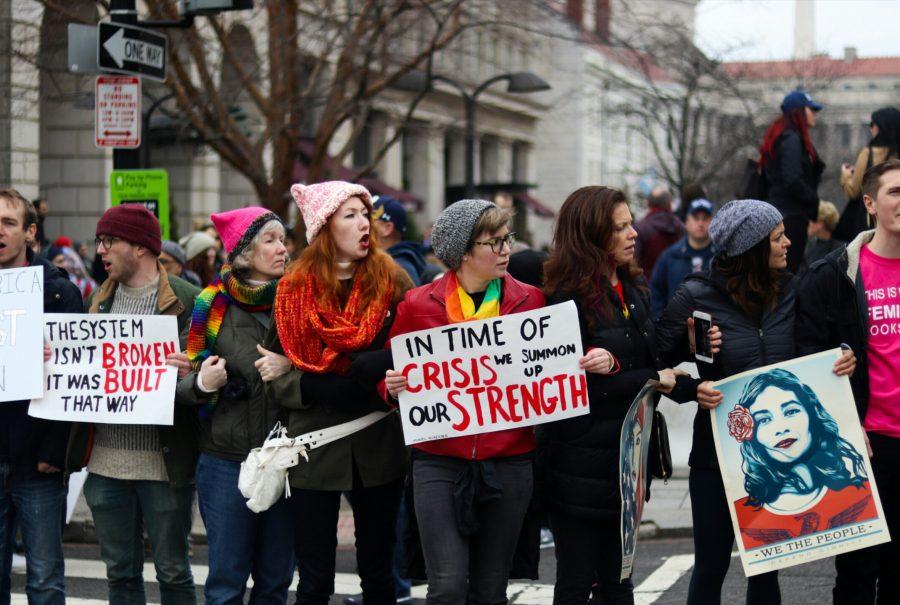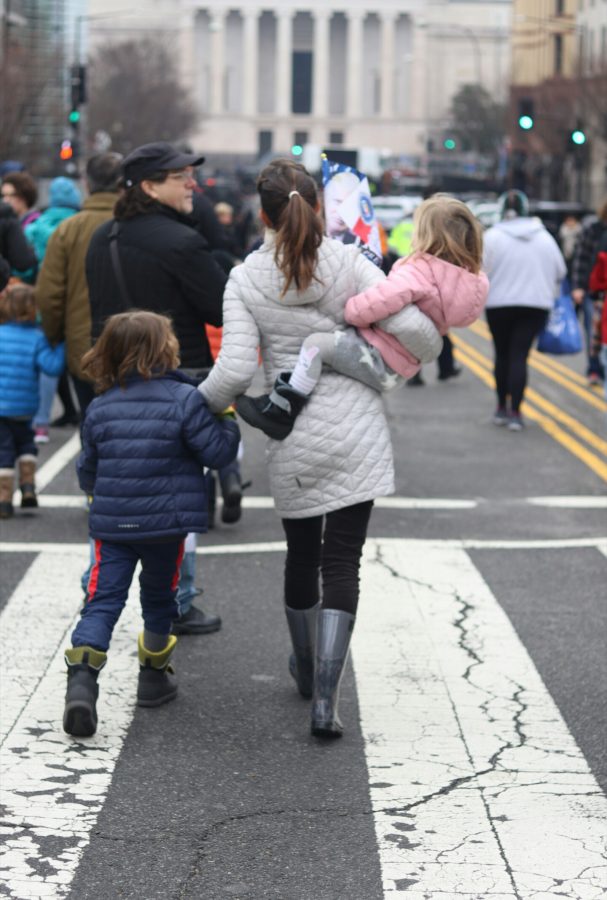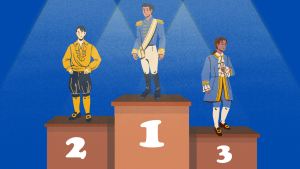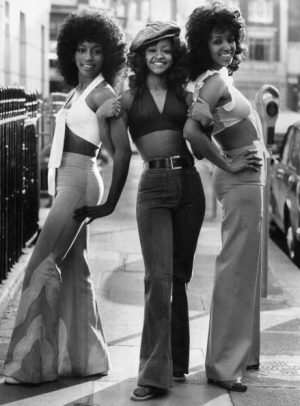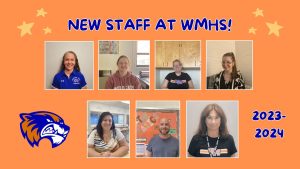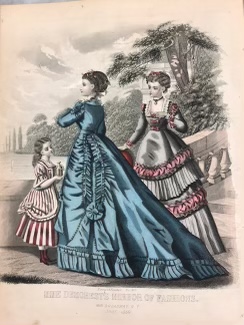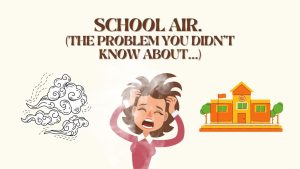Washington DC March brings community together to support women, immigrants, LGBTQ community
Protesters hold signs at the Women’s March
February 3, 2017
On Saturday January 21, an estimated 4.8 million people marched worldwide to protest the stances of President Donald Trump, which became know as the Women’s March. Worldwide, 673 marches took place, with roughly 343 of them within the United States.
According to the New Yorker, the idea for the March came from Teresa Shook, a grandmother from Hawaii, who “created a Facebook page suggesting a protest” after the 2016 Presidential Election. The next day she received more than 10,000 RSVPs.
“The March was a way to show up and say that we will not support Donald Trump’s agenda, [one] that would hurt women, people of color, LGBTQ community, and the environment,” Watkins Mill community member Susan Young said. “I don’t think I would have marched against another Republican president, but I feel that Donald Trump is uniquely dangerous and divisive, not to mention simply cruel and humiliating in his rhetoric.”
The Women’s March on Washington was created by four national co-chairs, a national coordinating committee, and many independent coordinators. Sister marches were held in Los Angeles, Boston, Dallas, as well as 340 other cities in the United States. Of those sister marches, 330 were held internationally, with marches held in each of the seven continents.
The vision for the marches was to “stand together in solidarity with our partners and children for the protection of our rights, our safety, our health, and our families – recognizing that our vibrant and diverse communities are the strength of our country,” womensmarch.com stated.
Women and men of all ages showed their support with posters and signs, while those who were not able to make it used social media to support the marches. Celebrities like, Amy Schumer, Josh Gad and John Legend, participated in the marches. People also traveled hours to reach cities where marches were being held.
“The March was to make sure that our voices were heard. [People of color], the LGBTQA community, people with disabilities, immigrants, women,” junior Catherine Hodge said. “We wanted to make a point that not everyone supported the current administration [and] politics and that we won’t go down without a fight.”
The Washington DC March included 43 speakers, ranging from activists to actresses and many more. Some of the speakers included humanitarian and actress Ashley Judd, Co-Chair of Women’s March on Washington Tamika Mallory, and Co-Founder of MPowerChange Linda Sarsour.
“I hope that people [understand] that in a democracy it is up to its citizens to voice their ideals to guide our elected officials… that our voice counts…[and] that we are powerful when we can participate in how we are governed,” Rockville community member Wafaya Abdallah said. “My favorite part of the March was seeing all the people who came. There were women, men, young, old and very ethnic group.”
“It was heartening to see so many hundreds of thousands of women, men and children come together for equality for all people. It meant that there are many families and individuals who believed in this,” local freelance writer Kristin O’Keefe said. “I loved going down together with my neighbors and their children [and feeling] excited to be a part of something bigger.”



